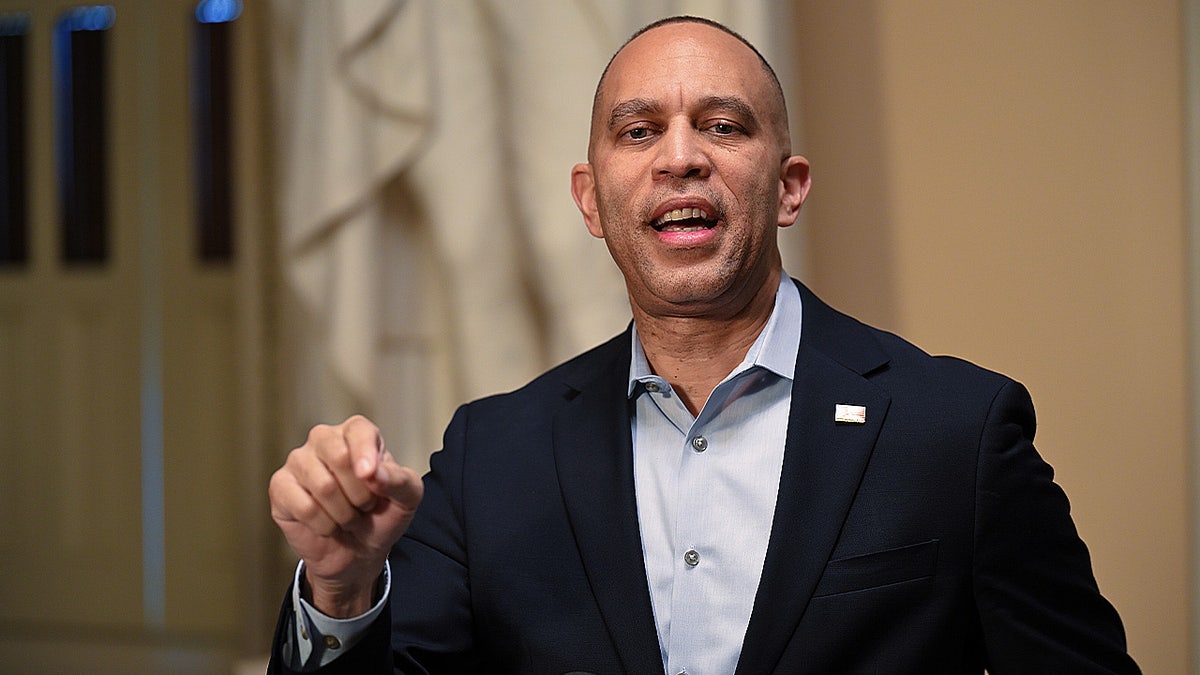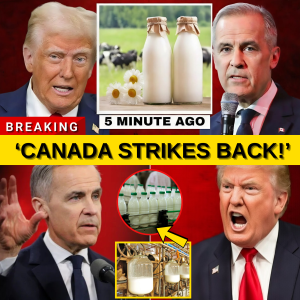In a fiery rebuke that has shaken Washington, House Democratic Leader Hakeem Jeffries has accused Republicans and the Trump administration of making what he called an “intentional, vicious choice” to leave millions of low-income Americans struggling to put food on the table.
At the center of the storm is the Supplemental Nutrition Assistance Program (SNAP)—commonly known as food stamps—one of the most vital safety nets in the United States. The Trump administration announced it would draw down nearly all of the program’s emergency contingency funds to cover just 50% of food stamp benefits for the coming month, warning that shifting more funds could jeopardize other critical social programs.
The move has triggered a political and humanitarian firestorm, reigniting long-standing battles over how America supports its most vulnerable citizens.

“A Cruel, Calculated Attack on Working Families”
Speaking from Capitol Hill, Jeffries didn’t hold back.
“This is not a budget mistake. It’s not mismanagement. It’s an intentional, vicious choice,” Jeffries declared. “Republicans are using America’s working families as pawns in a cynical political game.”
Jeffries accused the Trump administration of deliberately manufacturing a crisis to score political points, echoing Democratic frustrations that Republicans have repeatedly resisted expanding or protecting SNAP, even as food insecurity rates climb across the nation.
“This is cruelty disguised as fiscal responsibility,” Jeffries added. “They want to make it harder for struggling families to feed their children while continuing to protect tax breaks for the wealthy.”
The SNAP Emergency Fund Crisis
The U.S. Department of Agriculture (USDA) confirmed that the SNAP emergency contingency fund—a reserve account designed to stabilize benefits during crises like pandemics, government shutdowns, or natural disasters—is now nearly depleted.
Officials stated that the fund will be used to ensure recipients receive at least 50% of their usual monthly benefit, but warned that full benefits cannot be guaranteed unless Congress intervenes with additional funding.
The Trump administration defended its decision, saying that redirecting money from other welfare programs could create “a cascading failure” across multiple federal aid systems.
In a statement, a senior administration official said:
“We are doing everything within our legal authority to sustain SNAP as long as possible. But without congressional action, we face impossible choices. We cannot compromise one critical safety net to prop up another indefinitely.”
Families on the Brink
For the more than 41 million Americans who rely on SNAP benefits, the implications are devastating. Food banks across the country are already bracing for a surge in demand.
Maria Gonzalez, a single mother of three from Texas, said the news hit her like “a punch in the gut.”
“I already stretch every dollar. If they cut it in half, I don’t know how I’ll feed my kids,” Gonzalez said, holding back tears. “Politicians argue on TV, but we’re the ones paying the price.”
Nonprofit organizations like Feeding America have sounded alarms, calling the situation “a perfect storm of hunger and politics.” The group’s spokesperson warned that donations can’t fill a federal funding gap of this scale.

Political Fallout and Strategic Blame
Behind the rhetoric lies a larger strategic battle.
Republicans accuse Democrats of grandstanding and refusing to compromise on broader spending caps, arguing that the federal budget cannot sustain open-ended welfare programs.
House Speaker Mike Johnson fired back at Jeffries’ remarks, saying Democrats were “more interested in political theater than solutions.”
“The American people expect responsible leadership, not fearmongering,” Johnson said in a press statement. “SNAP must be sustainable, not a blank check funded by endless debt.”
Still, analysts note that Republicans risk political backlash if food benefits run dry during the holiday season—a moment when stories of struggling families dominate headlines and social media feeds.
“Voters have long memories when it comes to food and family,” said Dr. Lena Roberts, a political analyst at Georgetown University. “If this crisis deepens, Republicans could be painted as heartless, especially if Democrats frame it as a moral issue rather than a fiscal one.”
The Historical Context: SNAP as a Political Battleground
SNAP has long been a lightning rod for partisan debate. Created in 1964 under President Lyndon B. Johnson’s “War on Poverty,” it has faced repeated attempts at reform, cuts, and expansion over the decades.
Under the Trump administration’s first term, several efforts were made to tighten eligibility rules—moves that courts later blocked, citing the risk of pushing millions off food assistance.
Now, critics argue, the administration’s decision to exhaust the emergency fund amounts to “a backdoor cut” that achieves the same result without new legislation.
What Happens Next?
Democrats are calling for immediate emergency funding to replenish the SNAP contingency account, potentially through a standalone bill. But with partisan divisions deepening and election season approaching, legislative action appears uncertain.
Meanwhile, the USDA has urged recipients to plan for possible benefit reductions in the coming weeks, an announcement that has already sparked panic on social media.
Economists warn that a 50% reduction in SNAP benefits could ripple through local economies. Studies show that every dollar spent through SNAP generates roughly $1.50 to $1.80 in economic activity, particularly in grocery stores and rural communities.
“If benefits are slashed, the damage won’t stop at the kitchen table—it’ll hit small businesses too,” said Dr. Roberts. “This is both a humanitarian and economic crisis.”

A Nation Watching
As Congress heads into another tense budget showdown, the stakes couldn’t be higher. For millions of Americans, the debate over SNAP isn’t about politics—it’s about survival.
Jeffries summed it up in stark terms:
“This isn’t a numbers game. It’s about real people. And right now, they’re being sacrificed on the altar of political ambition.”
Whether this latest clash leads to a bipartisan solution—or deepens America’s divide over poverty and compassion—remains to be seen. But one thing is certain: the nation is watching, and the hunger crisis won’t wait.





